美军最高将领:中国试验高超音速导弹堪比斯普特尼克时刻
10/27/2021

美国军方高官称,中国疑似进行的高超音速武器系统测试,是在华盛顿与北京之间的竞争不断升级之际一种“非常令人担忧”的事态发展。
据彭博社报道,美国参谋长联席会议主席米利(Mark Milley)受访时说:“我们所见到的是一次高超音速武器系统测试的重大事件。这非常令人担忧,我不知道这能不能算一个斯普特尼克时刻(Sputnik时刻),但我认为非常接近了。它吸引了我们的全部注意力。”
斯普特尼克是前苏联在1957年发射的人类第一颗人造卫星,它使前苏联当时在太空竞赛中处于领先地位,让美国大为震惊。
英国《金融时报》此前引述未具名美方官员报道,中国军方可能在夏季进行了两次高超音速武器试验,包括把能携带核弹头的近地轨道高超音速武器发射到太空中。
该下一代技术如果得到完善,可能会被用于向南极发射核弹头,使它们绕过布置在北半球的美国反导系统。
报道称,米利把中国的试验与斯普特尼克时刻相提并论,显示了美国对北京在高超音速武器方面工作的担忧。
美国空军部长肯德尔(Frank Kendall)在上个月的演讲中提到了这种中国太空系统的潜力,这种系统在冷战期间被称为“部分轨道轰炸系统”,即先进入近地轨道再脱离轨道以击中目标。
雷神的首席执行官海斯(Gregory Hayes)周二表示,美国在高超音速技术方面“至少”落后于中国数年时间。
中国否认了相关报道,称其只是发射了可重复使用的航天器。
路透:拜登、习近平将在11月视频会晤
记者 张文馨/华盛顿报导
10/21/2021
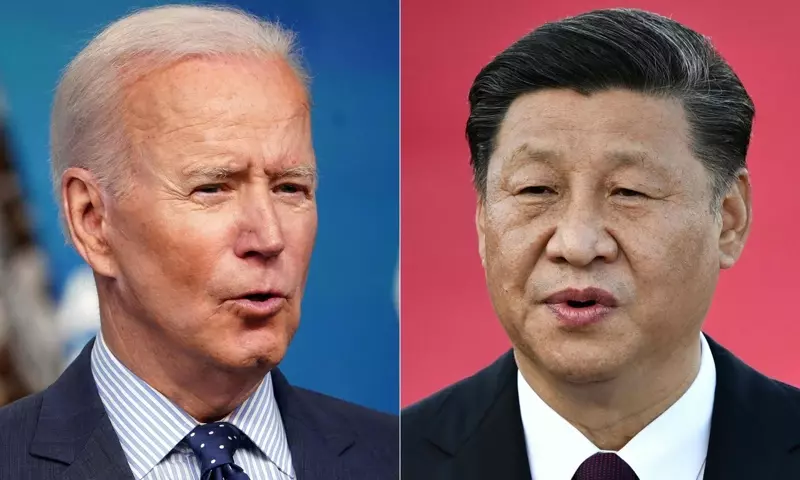
路透21日引述知情人士说法报导,美国总统拜登和中国国家主席习近平可望在11月通过视频会晤;美方认为两国领导人直接接触将有助管控美中关系。
知情人士表示,白宫官员加紧脚步安排拜习在线峰会,意在展现华府能负责任管理与竞争大国的双边关系;美国相信拜习直接接触是「避免关系恶化致冲突」的最佳方式。
路透报导,由于中国国内的防疫要求,和习近平不想出国访问的双重因素,华府希望在11月安排视频会议,相关计划仍在讨论中。
知情人士指出,「在和盟友讨论完成前,恐不会设置(拜习会)议程」,由于美中在新冠病毒起源、中方扩增核武库等诸多议题的立场南辕北辙,拜登团队对这次会议能取得特定成果的期待甚微,不愿透露更多细节。
路透引述匿名官员说法称,「会议本身就是最主要的会议成果」,期待这项会议将为美国所谓的「长期战略竞争」带来稳定。
来自欧洲和亚洲的外交官告诉路透,美中外交高层今年3月在美国阿拉斯加举行的会谈,让他们非常焦虑,担忧美中发生冲突;前欧盟驻华府大使欧苏利文(David O’Sullivan)表示,华府应该收到外界的信号了,这可能是美国向中国大陆接触的原因之一。
白宫国家安全顾问苏利文(Jake Sullivan)今年两度与中国外交高层会面,第一次就是今年3月的阿拉斯加会谈,美国国务卿布林肯(Antony Blinken)与苏利文共同会见中共中央外事工作委员会办公室主任杨洁篪与中方外交部长王毅,双方在会前公开谈话就剑拔弩张,你来我往,闭门会议结束后也未发表联合声明。
第二次为本月初在瑞士会晤杨洁篪,双方「原则上达成协议」,规画年底前拜习在线峰会,美国官员事后表示,很期待两人会面,即便只能通过视频。
Reuters
With Xi-Biden Meeting, U.S. Aims to Show Responsible Handling of China Ties
By Trevor Hunnicutt, David Brunnstrom and Michael Martina
10/21/2021
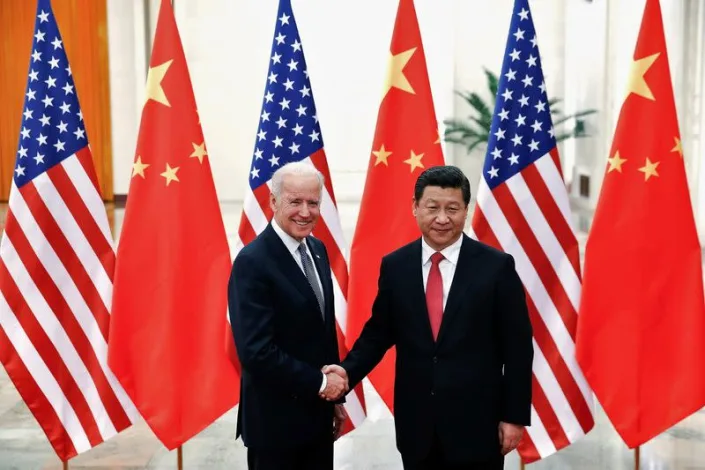
WASHINGTON (Reuters) – White House officials are gearing up for a virtual meeting between President Joe Biden and Chinese leader Xi Jinping they hope will show the world Washington can responsibly manage relations between the rival superpowers, people familiar with the matter say.
Combative diplomatic exchanges with China early in the Biden administration unnerved allies and U.S. officials believe direct engagement with Xi, who has consolidated power in Beijing to a degree not seen since Mao Zedong, is the best way to prevent the relationship between the world’s two biggest economies spiraling toward conflict.
Given China’s domestic COVID restrictions and Xi’s reluctance to travel, two sources familiar with the matter said Washington is aiming for a video conference call between Biden and Xi in November, though plans are still under discussion.
An agenda will likely not be set until after consultations with allies, they said, including during next week’s summit of the Group of 20 countries in Rome and a subsequent U.N. climate conference in Glasgow.
Biden will attend both forums. Xi, who hasn’t left China since early in the pandemic, is not expected to travel.
While the stakes for the Biden-Xi meeting are high – Washington and Beijing have been sparring on issues from the origins of the pandemic to China’s expanding nuclear arsenal – Biden’s team is so far setting low expectations for specific outcomes and has declined to say what the agenda might include.
“We are still planning details of the virtual bilateral meeting and there is nothing to preview at this time,” a senior administration official said.
The sources familiar with current plans, who spoke on condition of anonymity, said the meeting would be a major outcome in itself, with the hope it could bring stability to what Washington says will be long-term strategic competition.
The two sides agreed in talks in Switzerland this month to hold the virtual conference by the year-end, with direct leader-level communication intended to set relations in a more “constructive direction,” a senior U.S. administration official said at the time.
“We think it’s particularly important for the leaders to take more of a role in managing this relationship,” the official said.
Susan Thornton, a former senior State Department official for Asia now at the Brookings Institution, said the meeting could help repair a communication void and put a floor under relations that were still in a “downward spiral.”
“That’s not really an outcome, but it prevents things from getting worse,” she said.
Throughout a trade war during former President Donald Trump’s administration, Chinese officials sought an upper hand by suggesting U.S. officials were the ones seeking talks. Now, Biden officials trying to show the United States is the responsible power have flipped the script, telling journalists after a Sept. 9 phone call between Biden and Xi that Biden had initiated the interaction.
Departing from Trump’s go-it-alone approach to China policy, Biden has staked his strategy on mobilizing allies and partners in Europe and Asia to increase leverage over Beijing.
David O’Sullivan, the former EU ambassador to Washington, told Reuters European allies had been “very anxious” that improperly managed U.S.-China relations, as appeared evident in tense public exchanges at high-level diplomatic meetings in Alaska in March, could drag them into a conflict.
“Those are the kind of messages that people are sending to this administration. I think they understand that, and I think this probably is one of the reasons why they are reaching out (to China),” he said.
Days after the Alaska meetings, U.S. Secretary of State Antony Blinken found it necessary to stress in Brussels that the United States would not force any NATO ally to choose sides between Washington and Beijing.
An Asian diplomat said “everyone around the world was a little bit anxious” about where the U.S.-China relationship was headed after Alaska.
Toning down the rhetoric also made sense for Xi, who over the next year wants smooth sailing for hugely important national events, including the Beijing Winter Olympics in February, and a Communist Party Congress where he is set to secure an unprecedented third term as party boss.
“Not disrupting either of these means that you have to have some managed relationship between the U.S. and China,” the diplomat told Reuters. “You minimize the risk of conflict in what is actually a very important 12 months for Xi Jinping domestically.”
Hanging over the Beijing Games is Washington’s charge that China is committing “genocide” against Muslims in its Xinjiang region, although Biden officials have so far demurred in the face of calls by rights groups and U.S. legislators for a diplomatic boycott of the event.
Still, with disagreements abounding, U.S. officials insist it is a mistake to see a “thaw” in relations.
The administration has recently expressed concern about evidence of a nuclear build-up by China and its work on hypersonic missiles, and has also accused China of ramping up military activity in an effort to intimidate democratic Taiwan.
On Wednesday, Biden’s nominee to be ambassador to China, Nicholas Burns, called China Washington’s “most dangerous competitor” and said the United States needed to work closely with allies.
“We have partners who believe in us and the Chinese really do not,” he said. “I think President Biden has tried to emphasize the need for us to be very closely aligned … (with) our treaty allies, our defense partners.”
马凯硕: 西方不应错误地认为中国需要照搬其模式
10/19/2021
新加坡前资深外交官马凯硕(Kishore Mahbubani)昨天(18日)说,西方认为中国应该照搬其模式,这是错误的假设,因为中国是一个更加强韧和更加自信的文明,而西方亟需明白这一点。
根据中新社报道,也是新加坡国立大学李光耀公共政策学院创始院长的马凯硕在接受德国“中国平台”网站专访时说,一个崛起的中国并不会步美国的后尘寻求称霸,因为中国专注于改善本国14亿人的生活,而不是卷入毫无必要的战争。
Jul 1, 2021
Kishore Mahbubani of the Asia Research Institute and former diplomat says U.S.-China tension regarding China’s “reunification” with Taiwan “may lead to a war.” He says pushing China into a corner would be unwise.
谈及西方国家习惯于将美国视作“民主伙伴”,而将中国视作“挑战和威胁”,马凯硕直言,这种观念并不正确。他指出,中国是世界上最古老的文明之一,在其历史上有超过4000年的时间是领先世界的,只有近代以来才有200年左右的时间落后于西方,但后者只是很短的时期。他说,西方认为中国应该照搬其模式,这是错误的假设,因为中国是一个更加强韧和更加自信的文明,“西方亟需明白这一点”。
马凯硕认为,关于“新冷战”的表述是错误的。在美苏冷战期间,东西方两大阵营相互隔绝,而今天的中美两国在经济领域已经紧密地联系在一起。在他看来,当前的确存在大量的地缘政治博弈,但今天的世界已是相互依存的状态,需要共同应对越来越多的全球性挑战,例如冠病疫情和气候变化。
马凯硕强调,一个崛起的中国不会步美国后尘。他认为,中国不希望以一种“传教士”的方式去改变世界,更不会让自身陷入类似伊拉克或者叙利亚那样毫无必要的战争当中,“这是因为中国要专注于改善本国14亿人的生活,这已经够忙了。”
Sep 23, 2021
谈及对下届德国政府对华政策的期许,马凯硕表示,情绪化是处理地缘政治时最大的误区,德国应该避开这一误区,“过去十年间,中国市场增长了三倍,你不应忘记你的汽车正在销往何处。”
马凯硕曾作为新加坡常驻联合国代表担任安理会轮值主席,他的最新著作《中国的选择:中美博弈与战略抉择》近日被翻译成德文出版发行。
新加坡外交部长维文:维系新中关系窍门 是要保持有用但不被利用
来自 / 联合早报
文 / 杨浚鑫
10/12/2021
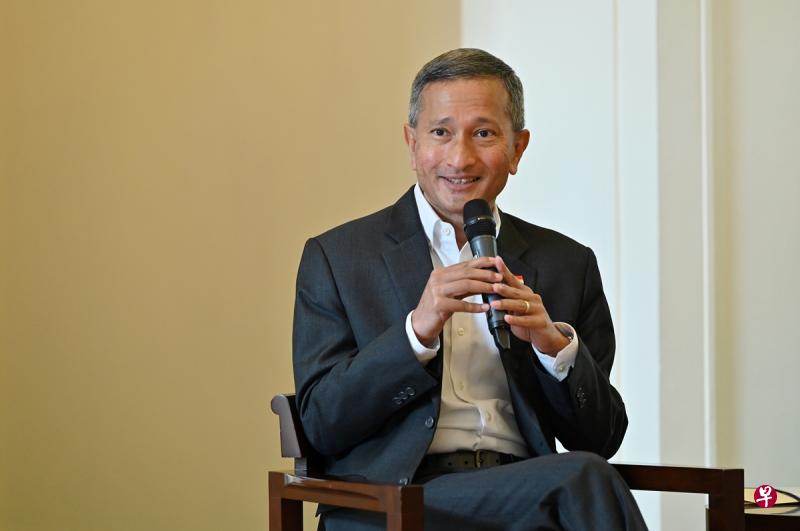
外交部长维文医生日前上澳洲访谈节目时,被问及是否对澳中关系出现波折感到惊讶,他以分享新加坡的经验做出回应。“维系与中国的关系在于保持相关性,有用处却不被利用。这是我们所有人都须要找到的微妙平衡,新加坡找到了。”
新中关系的维系,在于我国通过政府间合作项目等方式,对中国保持相关性,有用处却不被利用。外交部长维文医生说,这是各国须找到的微妙平衡。
由澳大利亚前国防部长派恩(Christopher Pyne)主持的访谈节目《环球焦点》,前天(10月10日)在澳洲天空新闻台(Sky News Australia)播出第一集,邀请到维文担任嘉宾。
根据外交部提供的访谈文本,派恩就澳中目前的紧张关系询问维文,是否对这两个国家的关系出现波折感到惊讶。维文回应时强调,他没有资格告诉澳洲如何施展外交,他能做的只是分享新加坡的经验。
维文说,中国是新加坡最大的贸易伙伴,新加坡自2013年起也是中国最大的外资来源国。“因此,从新加坡的角度,我们有着切身利益,而我们对中国的态度向来是展示我国的相关性。”
他举出三个新中政府间合作项目,即苏州工业园、天津生态城,以及重庆战略性互联互通示范项目。其中,重庆项目下的“国际陆海贸易新通道”,将通过新加坡连接中国西部和东南亚。
维文说:“维系与中国的关系在于保持相关性,有用处却不被利用。这是我们所有人都须要找到的微妙平衡,新加坡找到了。”
他强调,新中关系极佳,中国国务委员兼外长王毅不仅上个月访新,两人过去12个月也面对面会见了约四次。“双方互动水平和节奏向来很高。或许较鲜为人知的是,即使在冠病疫情期间,双方仍在关键时刻彼此低调相助。”
长期关系必生分歧 维文:出现时须解决
维文说,新中关系并不对称,因为新加坡太小了,也不是基于完全一致的立场,因为这不可能,但两国找到合作方式,并在出现分歧时共同解决。
他认为,分歧是任何长期关系不可避免的一部分,必须去处理。“这如同一场每周都有同样玩家围坐一桌的游戏。即使你有分歧也要去解决它,并理解这其中有大的格局和更长远的角度。”
派恩进一步追问,新加坡的做法是不是亚细安国家普遍采取的做法。对此,维文说,亚细安已超越欧盟和美国,成为中国最大的贸易伙伴。
“这种贸易相互依存关系是真实的,并仍在增长。”
就中国的“一带一路”项目而言,东南亚对此的主要兴趣在于投资,尤其是基础设施和连通性方面的投资。可见,双方的中长期利益有明显交集。
因此,尽管中国在南中国海问题上与东南亚声索国存在分歧和争端,但这只是双方广泛关系中的一个面向。维文说:“没有人希望情况失控或破坏关系的长期轨迹。”
他坦言,领土声索可能需要数年乃至数十年才能解决,任何国家都不会轻易放弃,但它不是各国继续往来和建立关系的绝对障碍。这正是东南亚目前的情况。
维文也重申,亚细安坚持维护包容开放的区域架构。这当然牵涉美国。事实上,美国在东南亚的投资额,超过它在印度、中国和韩国的投资总额,因此在本区域拥有切身利益。
“我曾对美国历届政府说:‘你们已经占得先机。美国仍是东南亚最大的外资来源国。美国在本区域的存在受到欢迎且具建设性。不要失去这个领先优势。’”
派恩也问维文,是否认为北京正在制定一个能允许澳中有尊严地走出目前混乱局面的方式。对此,维文说,中国在地缘战略上有长远和开阔的眼光,他相信有这方面的计划,虽不清楚何时发生,但希望两国关系能早日改善。

Tel: 551-580-4856 | Email: F.WINNIE.S@GMAIL.COM
Transcript of Minister for Foreign Affairs Dr Vivian Balakrishnan’s Interview on Sky News Australia’s “Global Focus with Christopher Pyne” on 15 September 2021
10/12/2021
Christopher Pyne (Sky News Australia): Hello, I am Christopher Pyne, and this is “Global Focus” on Sky News Australia. Today, my guest is Vivian Balakrishnan, who is Singapore’s Foreign Minister and a good friend to Australia over a long period of time. Vivian, welcome to the show, and thank you very much for being with us.
Minister: Thank you. Always great to see you. A blast from the past, and we have been up to a lot together.
Pyne: That is definitely true. I am sorry we cannot be together in person. But you know, it would not be too long before we can be again.
Minister: Hope so, hope so.
Pyne: The relationship between Australia and China is clearly strained at the moment, economically and politically. Does it surprise you that the relationship has taken this turn?
Minister: Well, first I would say, I am not really in a position to advise Australia. But what I would say, shared as a perspective from Singapore – this tiny city-state in the heart of Southeast Asia. The biggest success story in the last 40 years really has been China after the reform started by Deng Xiaoping. As a result of that, and especially the last 20 years since they joined the WTO (World Trade Organization), China has become our largest trading partner. But the other surprising fact, perhaps, may be that Singapore is also the largest foreign investor in China, has been since 2013. So, the point is that from a Singapore perspective, we have got skin in the game. And our attitude to China has been to demonstrate relevance. For instance, we have got three Government-to-Government projects. The first one was in Suzhou. It was an industrial park – bring in foreign companies, build manufacturing plants. Second was in Tianjin – that was an eco-city, when this whole thing of sustainable development came about. Our most recent project was in Chongqing – in a sense, part of the BRI (Belt and Road Initiative) but really an attempt to connect Western China and through this new corridor which we call the “Chongqing Connectivity Initiative-New International Land-Sea Trade Corridor”. This corridor links Western China through into Southeast Asia via Singapore. So, it has been about relevance, about being useful, but not being made use of. This is a delicate balance which all of us need to find, and we have been able to find that. Right now, if you were to ask me, I would have to say our relations are excellent. (Chinese) Foreign Minister Wang Yi was just in town. I have seen him personally face-to-face about four times in the last 12 months. The level of interaction, (and) the tempo has been high. Perhaps the lesser-known fact is that even during this COVID pandemic, at critical moments, quietly, both sides have helped each other at critical points in time. So, there is a relationship not based on symmetry – you cannot, because we are so small – not based on complete congruence – it is not possible – but we find ways to work together and where there are differences, we work through them. The point is that you have to treat the issues as they come up – the differences as part and parcel of a longer-term relationship that has to be managed. It is like a game in which the same players are going to be at the table week after week. Even if you have differences, work it out and understand that there is a much larger account and a much longer-term horizon. That is just my take from Singapore. I am in no position to tell Australia how to conduct foreign policy. Julie Bishop and Marise Payne are more than capable of doing this.
Pyne: Yes, indeed. My former House mate in Canberra for 20 years, Marise Payne, would not be appreciative at all of you giving her advice about how to manage our relationships. But she likes you very much.
Minister: She does not need my advice.
Pyne: I know how well you get along.
Minister: We get along perfectly.
Pyne: I have been in some of those meetings of ministers for trade, defence, and foreign affairs, and I know how close you and Marise are. This is a great relationship that we have got.
Minister: Chris, you have been there. You have seen it up close.
Pyne: I had, and (I) enjoyed it too. The approach that you have just outlined that Singapore is taking with China, is that generally the approach of the ASEAN nations? That they all see similarly that they can have a relationship with China, which does not have to exclude others?
Minister: Well, I would characterise the relationship with ASEAN and China along the following dimensions. First, China is now the largest trading partner for virtually all of us. But a more recent development which may not be fully appreciated yet, is that if you ask China who their largest trading partner is, in fact, ASEAN has now overtaken the EU (European Union) and the US (United States). This trade interdependence is real, and it is growing. So that is the first point. The next point is that even if you look in terms of China’s Belt and Road signature project, the key interest of Southeast Asia is investments, and particularly investments in infrastructure, in connectivity, and still there again you see that there is an obvious confluence of interests – medium and long term interests. Are there problems or differences? You know fully well that there are. For instance, in the South China Sea, where there are differences over claims, for each of the Southeast Asian countries with claims – and I would exclude Singapore because we have no claims in the South China Sea – but for each of the claimant states, their differences, their disputes – even if you want to call it that – with China are just one dimension of a much broader relationship, and therefore would be looked at strategically. No one wants them to get out of hand or to disrupt the long-term trajectory of relationships. Now, one final point I would make about ASEAN, is that ASEAN is very insistent on maintaining an inclusive and open regional architecture. This is something which Australia would be familiar with because you know that we have always been advocates, champions for Australia’s economic and political engagement with our part of the world. (The) same thing applies to China. Even as China is our biggest trading partner, even as China is a significant source of investment, and we are key investors into China, we want to keep our region open, inclusive, and that of course relates to the elephant in the room – America, which has in fact, invested more in Southeast Asia than America has invested in India, China, and (Republic of) Korea combined. That is another fact which is not fully appreciated – the amount of skin that America has in Southeast Asia. I used to tell successive administrations: “You have got a head start. You still remain – when I say “you” (I mean) America – the biggest foreign investor in Southeast Asia. You are a welcome, constructive presence. Do not lose the head start. You are welcome.” So, the key word there is inclusivity. We want Southeast Asia to continue to engage with China, with America, with Australia, New Zealand and of course, you have got Japan, (Republic of) Korea, and India, and that in a sense, creates the larger outer arc. Another example of that is the RCEP, the Regional Comprehensive Economic Partnership. The only one that could not get onto and sign was India. But for 15 countries – and the combined economy is a huge big chunk – to get on this platform, and to get on at a time when there is a pushback globally against free trade and economy integration, makes it all the more significant. So I would say it is a big, deep, and evolving account. But Australia is part of this account too, and that is important to emphasise, especially back home for you.
Pyne: Yes. Well, it is interesting because here in Australia, the media commentary is very much the only issue that people talk about is the tension between China and the rest of the nations in the Indo Pacific, and the South China Sea is, as you know, often used as the primary example of tension. But what you are saying, if I could paraphrase, is that the countries like the Philippines, Vietnam, Brunei, Indonesia, Malaysia, (and) others that have claims over the South China Sea, see that as just one part of a multi-faceted relationship with, what is clearly the largest economy in the region, and 1.3 billion people who are not suddenly going to go away. So, managing that relationship and that South China Sea tension is just another thing to discuss, as opposed to becoming the most important part of the relationship.
Minister: It is a long-term game. You are not dealing with an adversary, (and) you do not want to make them (an) adversary. But it is a stakeholder. You will have differences, and there will be divergence. The question is, can you resolve it? Even if you cannot (right) now – frankly territorial claims are very difficult to resolve; it may take years, decades even, and no country is going to walk away from claims lightly. But it does not have to be an absolute block to ongoing engagement and (the) building (of) those relationships. So that is really what is happening in Southeast Asia.
Pyne: Do you think that there is a party, and you cannot also comment on foreign policy out of Beijing, but would it surprise you if there was not a group in Beijing formulating, now, a dignified exit for both Australia and China out of the current imbroglio that we find ourselves in?
Minister: China thinks long term and takes a wide view in geo-strategy. I am sure there would be a paper somewhere in a drawer on what happens when we press the green button and say, the sun is out and it is (a) good day mate. When that will happen? I do not know. But I hope it happens soon.
Pyne: Yeah, me too. Well, Vivian that has been great. We have to go to a break now, but Sky News Australia will come back after the break and continue our conversation. It might switch to the role of the US in the Indo Pacific. So, thank you very much so far, and we look forward to talking to you again in a couple of minutes.
Christopher Pyne (Sky News Australia): Welcome back to Global Focus here on Sky News Australia. My guest today is Vivian Balakrishnan, Singaporean Foreign Minister. We have been talking about ASEAN, Singapore, Australia, the role of China in our region, and now we will shift to the other great superpower in the Indo Pacific, which is the US. Vivian, the Afghanistan war has effectively come to an end, Taliban is back in power in Kabul after 20 years. I know you cannot speak for all of ASEAN, but you can speak for the Singaporean Government. Is it your view and Singapore’s that this is the combination of the US completing its mission and now extricating itself from a very difficult conflict or is it being seen as a significant defeat for the US, which is going to take many years to recover from in terms of their prestige in the Indo Pacific region?
Minister: That is a profound question. Actually, both Australia and Singapore, and you would be familiar with this, were part of the International Security Assistance Force (ISAF) in Afghanistan. Why did America go in? And why was Australia and even Singapore part of the ISAF? It was because of terrorism. In fact, more specifically because of 9/11. In Singapore’s case, we even discovered a local terrorist cell. Fortunately, we discovered it before they could actually take any action. But even this local homegrown cell had links with Al-Qaeda. So we fully understand why in the aftermath of 9/11, America had to go in (to Afghanistan). The question then is, is this threat from terrorism resolved? The answer is that it is certainly acute. (The) immediate threat 20 years ago was settled, but the nature of terrorism has now metastasised and (is) turbocharged with internet technologies. In fact, the risk has gone up, not gone down. But really, if you think, and here we put ourselves in the Biden Administration’s shoes, the truth is they inherited a very difficult situation. Actually, they are not the first Administration to want to come out of Afghanistan. So, they were in a difficult pickle and I think you, as a former Defence Minister will know as well as I do, there is no easy, neat, tidy way to get out of a sticky situation like that. So, we understand why they had to get out. Of course, everyone wishes it was done more elegantly, but that is more easily said than done. We hope Afghanistan will not become another haven for terrorists again. But we have no illusions; I think both in Australia and in Southeast Asia, we have got homegrown terrorists. We have got terrorists in our own region. The question is whether they will be activated or at least enthused by current events in Afghanistan to try their luck. So, we will have to be vigilant. That is what confronts us. As far as the people in Afghanistan is concerned, I think there is an emerging humanitarian disaster. We hope that the Taliban leaders – you know, 20 years is a new generation – we hope that they will take good care of their own people. We hope that they will also build functional relationships with their neighbours and the rest of the world, but time will tell. In the end, I think the other point is that Afghanistan has always been the graveyard of empires. The British discovered it, the Russians re-learnt it. It looks like America’s nation building effort there has been another footnote in history of this recurring pattern. So, there we have it – a difficult situation. We have great sympathy for the Biden Administration.
Pyne: It will be very interesting to see if the new model for combating terrorism is similar to what happened in the Philippines a few years ago when the Australian government, the defence forces provided intelligence (and) surveillance support for the Philippines military in addressing the ISIS conflicts that occurred in the Philippines, and you would be familiar with that. ASEAN nations gave their support to the Philippine government, which was a much more clinical and specific engagement, as opposed to what happened in Afghanistan which was something like 25 different nations joining the coalition and whether we learned our lesson from that particular conflict. And of course, your point you made previously is a good one – the Biden Administration came to the Afghanistan conflict at the end. The Obama Administration announced the drawing down on forces almost 10 years ago. Of course, the Trump Administration announced that they were leaving and allowed 5,000 Afghan, Taliban fighters to be free. So, nobody comes to this, what appears to have been something of a fiasco, with entirely clean hands.
Minister: It is a messy situation. You mentioned the Southern Philippines, Marawi. There are no neat surgical operations. When there is a terrorist attack, it is not just a military operation. You also have to deal with the hearts and minds of the people. The solution, ultimately, lies locally. That is where the battlefront really is. It shows the limit of external intervention. To assume that we can do this remotely without leadership and resolve on the ground, locally – that is just a bridge too far. At least within Southeast Asia, I think all the governments are focused on this. We have got good counterintelligence operation information sharing. Australia has also been a critical part of this. You would know from your previous life. Like I said, we are just going to have to deal with it and to get on with it, and to know that this is a clear and present danger.
Pyne: Definitely. The Biden Administration, I think will be quite different to the Trump Administration in managing of the Indo-Pacific (and) China, and its superpower status. How do you see the Biden Administration in its early days, certainly being just over half a year? Here in Australia, we see it very much as a return to a more consistent and probably predictable response to issues. How has Singapore and the ASEAN nations in general, seen the Biden approach to the Indo-Pacific and particularly, he has made the Quad quite preeminent in his and his Secretary of State’s views about American foreign policy. How do you see that all playing out in the next three years?
Minister: Well, I share your view that at least in terms of style, in terms of the personalities involved, this is a return to a more conventional establishment, a more conventional way of operating the State Department. (US Secretary of State) Antony Blinken and the others, including (US National Security Advisor) Jake Sullivan, are not strangers to Australia and Asia. So that is familiar. You are on familiar ground. But I would say that the real question for us in Southeast Asia is that trade and investment is strategy. The fact that the US, having been a key locomotive for the CPTPP (Comprehensive and Progressive Agreement for Trans-Pacific Partnership), at the end of the day had to walk away from it – and mind you this is not because of the Biden Administration, – it is not just President Trump, but even candidate Hillary Clinton, the former Secretary of State, in her campaign also had to back away from the TPP (Trans-Pacific Partnership). Now, I know this is because of domestic pressures, the polarisation and the division in the American body politic. Frankly, America cannot come to the table until it resolves its internal situation, achieves unity of purpose, (and) achieves confidence to engage in this. But herein lies the apparent contradiction, because if you look at the past seven decades, the spectacular growth in Southeast Asia and the equally spectacular, uninterrupted growth of Australia, a key reason for that has been the US presence here, (and) its investments in our economy – and I already told you, America is more invested here (Southeast Asia) than it is in India, China, and (Republic of) Korea combined. I am sorry I do not have the figure for Australia, but I am sure it is a very big number. And not just money – access to technology, access to markets, becoming part of global supply chains with multinational corporations, this belief that free trade, properly negotiated free trade agreements, norms, rules and regulations, create a fertile environment for peace and prosperity. So I think we are all missing a key architect of that architecture and we have left the door open, certainly in terms of the CPTPP, for America to come back. I think both Australia and Singapore certainly hope America comes back. But in the meantime, while America is out, what has happened? The RCEP was signed last year. In fact, China and Singapore were the first two countries to ratify the RCEP. Now, China has also told us that they are interested in exploring and becoming part of the CPTPP. Of course, so has the UK (United Kingdom). And again, coming from a city-state that believes in free trade because, after all, trade is more than three times (Singapore’s) GDP, we have to welcome such overtures. The point is that all these big things are happening, and America does need to work out its strategy, and understand that the game in Southeast Asia is trade and investments. So that is what we are waiting for. I would not lose hope. I will continue to make that point, and to also remind America that the door remains open, and that you (America) have a head start. Do not miss out. Because after all, the real growth is in the Pacific, and America is a Pacific power. That is my elevator pitch to them.
Pyne: I think it is a good point you make. It is a good point you make, and the truth is Australia, Japan, and Singapore – when the Trump Administration withdrew from the TPP – we made it clear that we believe strongly in it, and that we would keep going with it, which I think was very important. Well Vivian, we could talk all evening and we have got lots more questions I could ask you, but we have run out of time. So, can I thank you very much for coming on Global Focus. It is great to see you again and I look forward to seeing you in person. And I send also Julie Bishop’s best wishes, who I was speaking with today.
Minister: Please tell her I miss her too. Great seeing you, thank you.
诚招美国和加拿大法律服务代理
因公司发展需要,诚招美国和加拿大法律服务代理。
要求:
懂英语、或西班牙语、或法语。
能合法工作有社安号或工号。
无需改行, 可以兼职。
大学生和有销售经验优先考虑。
自雇生意公司发美国报税1099,加拿大T4A
有意了解详情, 请扫码加微信, 非诚勿扰!

李光耀谈阿富汗问题讲了什么?
文 / 联合早报网
8/20/2021
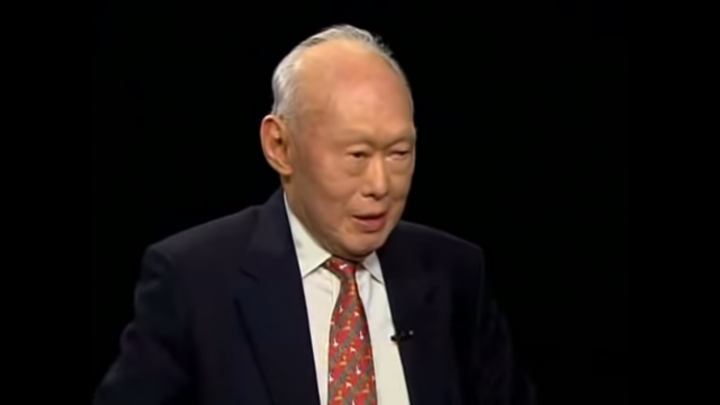
美国从阿富汗撤军没多久,扶植的政权迅速崩塌,以伊斯兰原教旨主义运动与恐怖主义活动起家的塔利班重新上台,山姆大叔投入了20年的资源和心血一夜间付诸东流……
这几天,一些网站上载了新加坡已故建国总理李光耀2009年10月接受美国著名电视记者、谈话节目主持人查理·罗斯(Charlie Rose)专访时谈及阿富汗问题的视频片段,有的中国网站的标题更称其为“神预言”。
首先要交代一下背景。美国是在2001年九一一事件后进军阿富汗,两个月间就推翻了被指为九一一事件主谋基地组织提供庇护的塔利班政权。2002至2008年,美国一方面继续与塔利班在军事上缠斗,另一方面则致力重建阿富汗国家核心机构。到了2009年,美国总统奥巴马增加在阿富汗的驻军,以实施一项保护民众免受塔利班袭击并支持叛乱分子重新融入社会的战略,同时也定下从2011年起逐步将安全责任移交给阿富汗军警并撤军的计划。但上述战略和计划都不甚成功,美国与北约的作战任务直至2014年12月才算正式结束。
李光耀2009年接受查理·罗斯专访时,正是美军加大投入阿富汗战争之际。
至于是怎么“神”呢,就来看看整理自视频的问答录:
查理·罗斯:当您审视美国与其对外关系,还有它对石油和中东政治的关注时,您是否认为这是一种分心?你认为……
李光耀:不,我不是说中东会让人分心。我认为试图在阿富汗打造出一个国家来是一种分心。在过去三四十年来,那里根本没有国家可言,末代国王被赶出去后就内战不止。
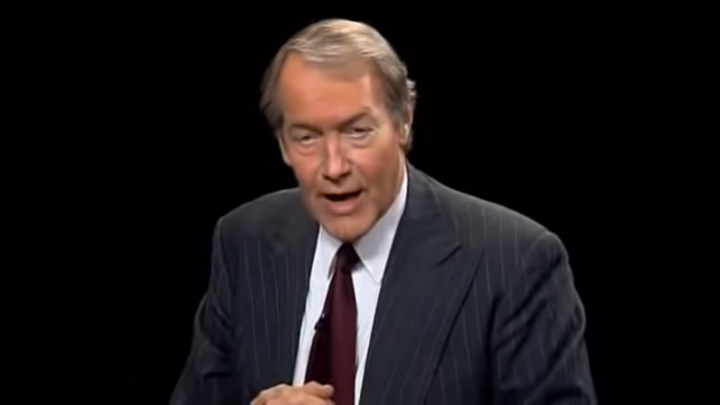
查理·罗斯:对。
李光耀:你们到底要怎么把这些小碎片拼在一起?这是不可能的。
查理·罗斯:所以,要怎么做?
李光耀:我不是专家,但我觉得你们在阿富汗获胜不是因为跟塔利班作战,而是因为你们让北方联盟与塔利班作战,并为北方联盟提供了情报和轰炸、瞄准塔利班的能力,以致他们成功取下南方。
查理·罗斯:是的,但他们在那里也面对治理问题。
李光耀:没错,但那是他们的问题,你们为什么要把它变成你们的问题?
查理·罗斯:那怎么办?你会撤出所有的军队,任由阿富汗发生的事情发生吗?反正他们对美国没有那么大的威胁,是这个论点吗?
李光耀:我不知道,因为我认为再怎么难,也难不过美国让他们的军队被困在那里了。苏联军队冷酷无情,他们中有12万人在那里,但也不得不离开。
查理·罗斯:我们帮了一点忙,因为我们支持了圣战者组织。他们得到了来自世界各地的很多支持,因为后者希望看到苏联挨打。
李光耀:但不管苏联人是否帮助他们把美国人赶出去,我认为……北约成员国对结果非常怀疑。
查理·罗斯:甚至到了不想将军队派往某些战区的地步。
李光耀:没错。是的,当然,因为那样你就会白白被枪杀。
查理·罗斯:但那些争论阿富汗是否被离弃的人首先会说,你看,苏联撤军后你曾经离弃过一次阿富汗,现在你又要离开了。美国必须坚持某些事情,并且必须对外展示它已准备好留下来。你完全不认同吗?
李光耀:不。
查理·罗斯:那你一定和你的朋友基辛格聊得很开心吧?
李光耀:不,不。
Aug 18, 2021
查理·罗斯:对于美国在世界上的角色,你和基辛格的看法有何不同?
李光耀:我不觉得我们有任何区别。
查理·罗斯:是吗?那你怎么定义呢?
李光耀:我认为美国可以成为世界秩序的良性稳定器,没有美国,东亚当初就不会增长,你们带来了和平与技术、贸易和投资,东亚因此繁荣昌盛。
查理·罗斯:很明显,东亚发生了这种情况,你说的是新加坡和韩国。我们如何在中东做到这一点?当我们发生这样的冲突时,你要怎么做到这点?
李光耀:(笑)你不能解决世界上所有的问题。
据新加坡时政网站慈母舰(Mothership)报道,除了上述专访,李光耀2008年2月2日接受合众国际社采访时,也曾谈及阿富汗问题,他在这次访问中的谈话比较坦率,并提出部分解决方案。
李光耀说,如果美国给困在阿富汗,不应尝试做太多事情,而是让军阀之间去解决,条件是他们不会去建立一个新的塔利班国家。
他认为,要改造一个社会,是超出了任何国家的能力,以美国当年攻打伊拉克为例,应该快进快出,进去了只要委任继任者就完事了,并警告说“如果你表现得像(倒台的伊拉克前总统)萨达姆,我就会回来”,那就够了。
美前高官傅立民:美正与中国打着注定会输的比赛
5/10/2021
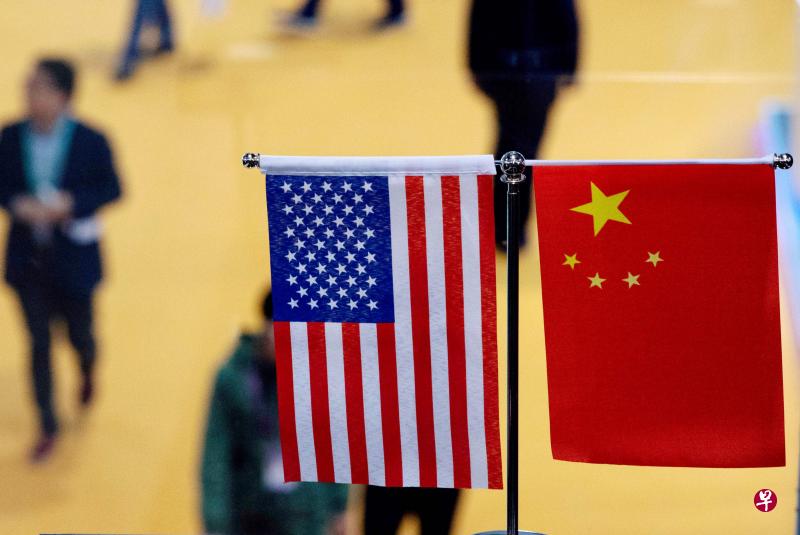
美国前资深外交官、前助理国防部长傅立民(Chas W Freeman Jr)批评美国政府的对华政策“自欺欺人”(self-defeating),指华盛顿正在打一场注定会输的对华比赛。
傅立民周日发表在澳洲亚太事务研究网站东亚论坛( East Asia Forum)上发发表题为《华盛顿正在打一场注定会输的对华比赛(Washington is playing a losing game with China)的文章,指美国应在全球性问题上加强与中国的合作,如果继续选择与中国对抗,只会在国际社会上失道寡助。
他认为目前的美中关系,凸显了弗里曼的战略动力学第三定律(Freeman’s third law of strategic dynamics),即每一次敌对行为都会引来更加敌对的反应。
文章指华盛顿发起贸易战,只是因为对中国超越美国的潜力感到担忧,并试图通过不断升级的“极限施压”来削弱、遏制中国。
他说,在国际象棋中,美国就是一个很容易被识别的选手:除了激进的开局外,没有其他的战略。
傅立民在文中以数据证明,美国老百姓深受政府发起贸易战的伤害。他指出,美国农民失去了价值240亿美元(318亿新元)的大部分中国市场;美国公司利润降低,转而削减员工工资和工作岗位、推迟加薪,并提高美国消费品的价格;据估计,美国损失了24.5万个就业岗位,同时减少了约3200亿美元的国内生产总值(GDP),美国家庭平均每年要多花1277美元购买消费品;预计到2025年,美国将失去32万个工作岗位,GDP将比预期的低1.6万亿美元。
文章指出,在另一边,中国正稳步前进。2020年,中国总体贸易顺差达到5350亿美元,再创新高;与此同时,中国正通过降低贸易壁垒、与美国以外的国家达成自由贸易协议、发起贸易争端解决机制等方法,提高了自己的地位。
此外,傅立民还称,中国给美国带来的挑战主要是经济和技术上的,并不是军事上的。但现实是,“美国的飞机和战舰总在中国边界周围活动,中国的飞机和战舰并没有在美国的海岸外巡逻;中国周围到处是美军基地,而美国附近却没有中国的基地”。
傅立民强调:“如果美国继续选择对抗,只会发现自己越来越孤立。如果美国对华政策被定义为一种道德努力,大多数其他国家将选择远离,而不是被吸引”。他指出,各国想要的是获得多边支持来应对挑战,而不是美国的单边对抗;希望在主权最大化的条件下容纳中国,而不是让中国成为敌人。
傅立民认为,除对抗无益外,中美两国合作还有许多必然性。首先,在美国国内,没有中国的参与,市场投资、供应链等很多问题都无法解决;其次,在国际上,两国应合作改革全球治理,解决共同关心的全球性问题,如环境恶化、流行病、核武器扩散、全球经济和金融不稳定、全球贫困等等,并为新技术制定标准。
在文章最后,傅立民强调,“为了在与中国(竞争中)保持优势,美国必须提升竞争力,建设一个治理更好、教育更好、更平等、更开放、更创新、更健康和更自由的社会”。他断言,显然对抗不是通往这一美好愿景的方式,合作才是。
傅立民目前是美国布朗大学沃森国际与公共事务研究所访问学者,曾作为美国前总统尼克逊的首席中文翻译陪同访华,之后他先后在国务院主管中国事务、担任美国驻华公使和负责国际安全事务的助理国防部长。
陆克文斥莫里森草率介入台海议题幼稚
5/10/2021

在中澳关系持续恶化的背景下,澳大利亚前总理陆克文撰文批评,莫里森政府最近声称若台海爆发战争,澳洲将支援美国等盟友的有关言论,“在政治上是幼稚的”(politically juvenile),可能损害澳洲核心国家安全利益。
莫里森上周接受澳洲3AW电台的访问时说,澳洲政府对台政策将坚定不变,若中国大陆武力进攻台湾,澳洲将会履行支援美国及盟友的承诺。
对此,陆克文前天(8日)在《悉尼先驱晨报》发表署名文章称,莫里森政府最近对澳洲军事介入未来美中对台湾战争的可能性所发表的草率评论,在政治上是幼稚的,可能损害澳洲核心国家安全利益。
文章说,50年来,澳洲历届政府都没有在台海冲突的课题上,公开猜测澳洲会怎么做,但在过去两周,总理莫里森、国防部长达顿,以及内政部秘书长佩祖洛,都严重违反了这一澳洲两党共识。
陆克文在文章中指出,澳洲政府此前有充分理由对潜在的台湾军事方案保持沉默(tight-lipped),因为该冲突将涉及中美两个世界上最大的军事力量,并有可能成为自1945年以来亚洲最暴力和最具破坏性的战争。因此,澳洲现阶段不应该损害国家决策的独立性和灵活性。
文章也说,澳洲官员一直周旋在华盛顿、北京和台北之间,竭尽全力防止此类战争发生。面对美国,澳洲官员要同美国一道,确保美国在亚太地区的军事威慑力,以此对中国大陆产生遏制效果;面对中国大陆,澳洲官员则进行游说,试图让北京相信美国会武装介入台海冲突;而面对台湾,澳洲官员要试图阻止台湾单方面宣布“台独”(或采取走向“台独”的步骤),因为这将越过北京最基本的红线。
文章接着称,莫里森政府在台湾问题上像不成熟地捶胸示强(adolescent chest-thumping),不仅让美国人感到困惑,让大陆民众感到愤怒,让台湾百姓不解,也让亚太地区其他国家感到迷惑。
陆克文随后在文章中质问,为什么莫里森、达顿等要在台湾问题上,公开发出“红色警报”信号?难以想象(inconceivable)澳洲的国家安全机构会建议他们这样做,因为这不符合国家利益。“事实上,这在战略上将适得其反。”
陆克文在文中指出,目前澳洲疫苗和检疫程序一团糟、债务和赤字居高不下、执政党自由党内歧视女性问题严重,莫里森政府此时发表草率涉台言论唯一可能的动机是想转移国内视线,以获得多数支持赢得选举。对自由党来说,把工党打成“亲共”是最好的伪装。
文章称,坎培拉还有一个最广为人知的秘密:达顿和莫里森之间存在未公开的领导权之争。达顿认为,在自由党内部,中国议题是击败莫里森的最佳工具。这是可耻的,纯粹为了政治私利,用澳洲核心国家经济和安全利益做赌注。
陆克文最后在文中说,中国日益增长的实力以及特朗普政府的失败,让莫里森政府难以处理澳中关系。面对复杂的挑战,澳洲领导者需要有明智、冷静和慎重的判断,国家安全不是政治游戏。然而,莫里森和达顿过去两周的表现无疑表明,面对复杂的国家安全性势,这届澳洲政府缺乏应对挑战的勇气。
China beating US by being more like America
Cultivating human capital will be essential if the US rather than China is to be the base of the next industrial revolution
By BRANDON J WEICHERT
4/25/2021
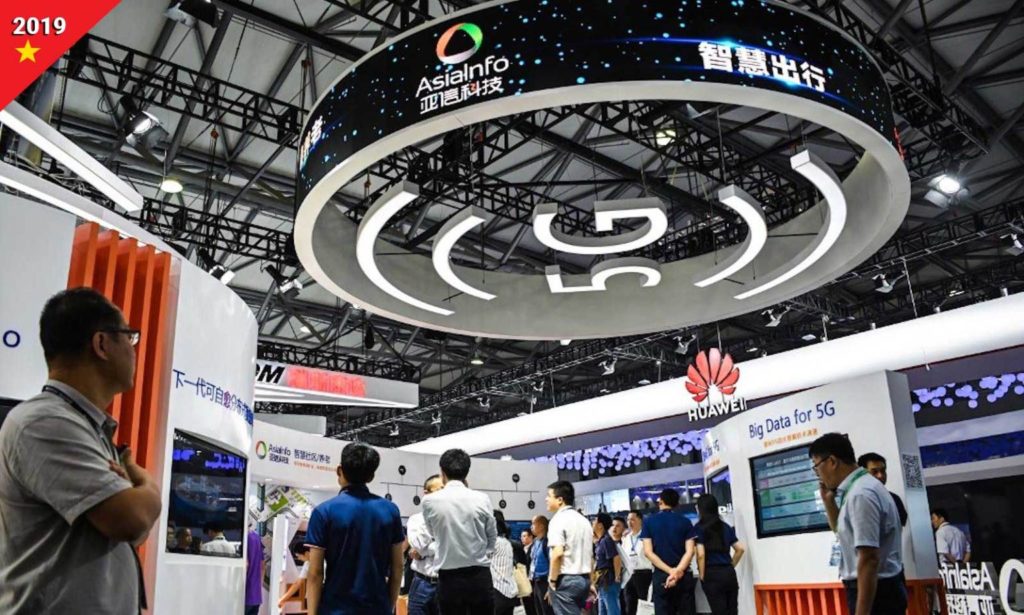
The United States transitioned from an agrarian backwater into an industrialized superstate in a rapid timeframe. One of the most decisive men in America’s industrialization was Samuel Slater.
As a young man, Slater worked in Britain’s advanced textile mills. He chafed under Britain’s rigid class system, believing he was being held back. So he moved to Rhode Island.
Once in America, Slater built the country’s first factory based entirely on that which he had learned from working in England’s textile mills – violating a British law that forbade its citizens from proliferating advanced British textile production to other countries.
Samuel Slater is still revered in the United States as the “Father of the American Factory System.” In Britain, if he is remembered at all, he is known by the epithet of “Slater the Traitor.”
After all, Samuel Slater engaged in what might today be referred to as “industrial espionage.” Without Slater, the United States would likely not have risen to become the industrial challenger to British imperial might that it did in the 19th century. Even if America had evolved to challenge British power without Slater’s help, it is likely the process would have taken longer than it actually did.
Many British leaders at the time likely dismissed Slater’s actions as little more than a nuisance. The Americans had not achieved anything unique. They were merely imitating their far more innovative cousins in Britain.
As the works of Oded Shenkar have proved, however, if given enough time, annoying imitators can become dynamic innovators. The British learned this lesson the hard way. America today appears intent on learning a similar hard truth … this time from China.
By the mid-20th century, the latent industrial power of the United States had been unleashed as the European empires, and eventually the British-led world order, collapsed under their own weight. America had built out its own industrial base and was waiting in the geopolitical wings to replace British power – which, of course, it did.
Few today think of Britain as anything more than a middle power in the US-dominated world order. This came about only because of the careful industrial and manipulative trade practices of American statesmen throughout the 19th and first half of the 20th century employed against British power.
The People’s Republic of China, like the United States of yesteryear with the British Empire, enjoys a strong trading relationship with the dominant power of the day. China has also free-ridden on the security guarantees of the dominant power, the United States.
The Americans are exhausting themselves while China grows stronger. Like the US in the previous century, inevitably, China will displace the dominant power through simple attrition in the non-military realm.
Many Americans reading this might be shocked to learn that China is not just the land of sweatshops and cheap knockoffs – any more than the United States of previous centuries was only the home of chattel slavery and King Cotton. China, like America, is a dynamic nation of economic activity and technological progress.
While the Chinese do imitate their innovative American competitors, China does this not because the country is incapable of innovating on its own. It’s just easier to imitate effective ideas produced by America, lowering China’s research and development costs. Plus, China’s industrial capacity allows the country to produce more goods than America – just as America had done to Britain
Once China quickly acquires advanced technology, capabilities, and capital from the West, Chinese firms then spin off those imitations and begin innovating. This is why China is challenging the West in quantum computing technology, biotech, space technologies, nanotechnology, 5G, artificial intelligence, and an assortment of other advanced technologies that constitute the Fourth Industrial Revolution.
Why reinvent the wheel when you can focus on making cheaper cars and better roads?
Since China opened itself up to the United States in the 1970s, American versions of Samuel Slater have flocked to China, taking with them the innovations, industries, and job offerings that would have gone to Americans had Washington never embraced Beijing.
America must simply make itself more attractive than China is to talent and capital. It must create a regulatory and tax system that is more competitive than China’s. Then Washington must seriously invest in federal R&D programs as well as dynamic infrastructure to support those programs.
As one chief executive of a Fortune 500 company told me in 2018, “If we don’t do business in China, our competitors will.”
Meanwhile, Americans must look at effective education as a national-security imperative. If we are living in a global, knowledge-based economy, then it stands to reason Americans will need greater knowledge to thrive. Therefore, cultivating human capital will be essential if America rather than China is to be the base of the next industrial revolution.
Besides, smart bombs are useless without smart people.
These are all things that the United States understood in centuries past. America bested the British Empire and replaced it as the world hegemon using these strategies. When the Soviet Union challenged America’s dominance, the US replicated the successful strategies it had used against Britain’s empire.
Self-reliance and individual innovativeness coupled with public- and private-sector cooperation catapulted the Americans ahead of their rivals. It’s why Samuel Slater fled to the nascent United States rather than staying in England.
America is losing the great competition for the 21st century because it has suffered historical amnesia. Its leaders, Democrats and Republicans alike, as well as its corporate tycoons and its people must recover the lost memory – before China cements its position as the world’s hegemon.
The greatest tragedy of all is that America has all of the tools it needs to succeed. All it needs to do is be more like it used to be in the past. To do that, competent and inspiring leadership is required. And that may prove to be the most destructive thing for America in the competition to win the 21st century.
Source: https://asiatimes.com/2021/04/china-beating-us-by-being-more-like-america/
Feb 18, 2021
Aug 4, 2020




